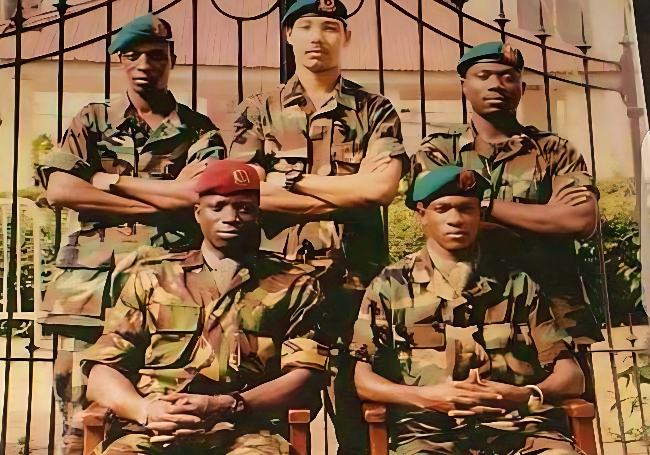Gambiaj.com – (BANJUL, The Gambia) – Thirty-one years ago today, on July 22, 1994, The Gambia witnessed a rupture in its democratic journey. What began as a quiet Friday morning ended with the collapse of Africa’s longest-standing civilian government and the rise of a group of junior military officers led by a little-known lieutenant—Yahya Jammeh. That day marked the beginning of a two-decade authoritarian era that would redefine governance, politics, and civil liberties in our small West African nation.
It is tempting to treat that moment as a closed chapter—something to be confined to history books or remembered with slogans and silence. But July 22 is not merely a date; it is a lesson still unfolding.
For those who lived through it, the coup did not simply represent a change in leadership—it ushered in an era of fear, coerced loyalty, institutional decay, and the erosion of values that had anchored the post-independence state.
The Seeds of Discontent
The roots of the 1994 coup lay not only in the discontent of soldiers over poor pay and working conditions but also in deeper systemic weaknesses—rising youth unemployment, perceptions of entrenched corruption, and growing public fatigue with a government that had remained in power since independence.
The failure to reform, to communicate transparently, and to respond to citizens’ needs created fertile ground for disillusionment. And when institutions lack resilience, the door is opened to opportunists with guns and grievances.
What followed was a swift shift from an imperfect democracy to a perfected autocracy. Under Jammeh’s rule, The Gambia became a cautionary tale—where development was weaponized, dissent criminalized, and fear institutionalized.
Civil servants were purged or silenced, the judiciary compromised, and the military turned into a personal guard. Commissions of inquiry, detentions without trial, and summary dismissals became normalized tools of repression. Even where infrastructure and services improved, progress came burdened by authoritarian governance.
The Work Ahead

Since the 2016 transition, The Gambia has taken important steps to rebuild democratic institutions and restore public trust. From the launch of the Truth, Reconciliation, and Reparations Commission to efforts aimed at constitutional reform, a national process of reckoning and renewal is underway.
But rebuilding a democracy is neither immediate nor easy. The challenges—ranging from institutional capacity deficits to political polarization and heightened public expectations—remain significant. Sustained progress requires consensus, patience, and a deep commitment to reform.
One area that demands urgent attention is the professionalization and protection of the public service. During the military era, many civil servants were dismissed, not for misconduct but for having served previous governments. Commissions of inquiry were often viewed as instruments of control rather than justice.
Today, public service must be guided by merit, fairness, and continuity—not fear or political affiliation. Democratic transitions must rest on a foundation of dialogue, legal safeguards, and meaningful citizen participation. The lessons of July 22 remind us that institutional reform cannot be driven by politics alone.
It must be anchored in principle, in law, and in the aspirations of the Gambian people—for dignity, for stability, and for progress.
July 22, 1994, was not an isolated event. It was the culmination of deep fractures in leadership, accountability, and statecraft. As we mark another anniversary, we must do more than remember the past—we must confront its lingering shadows in the present.
Only then can we ensure that never again will a nation be taken hostage by its own army and that the people remain the only rightful source of power.










